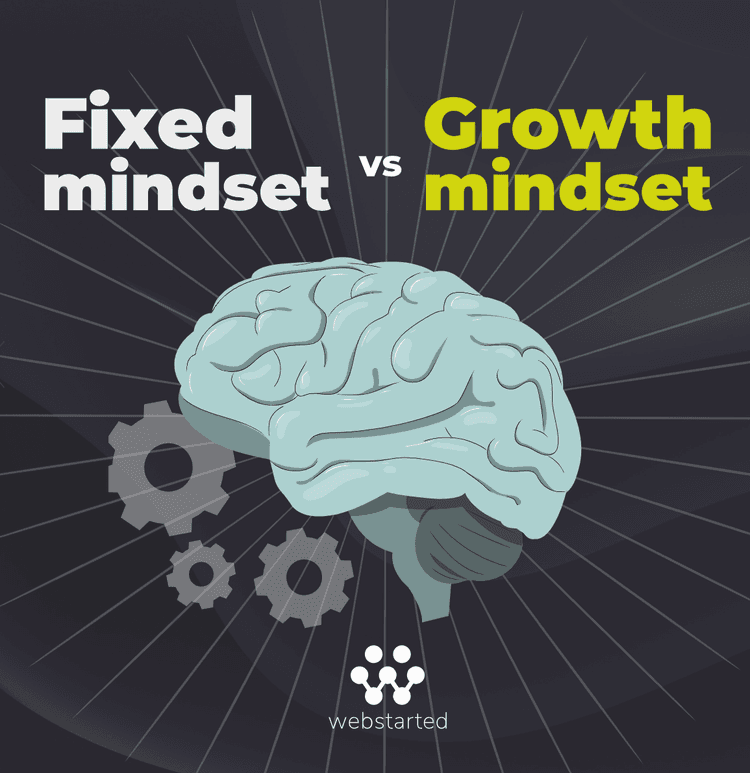
The concepts of growth mindset and fixed mindset were popularized by psychologist Carol Dweck, who introduced these terms in her groundbreaking work, Mindset: The New Psychology of Success. A growth mindset is characterized by the belief that abilities and intelligence can be developed through dedication, hard work, and perseverance. In contrast, a fixed mindset posits that abilities are static and unchangeable, leading individuals to avoid challenges and view effort as futile. Understanding these mindsets is crucial as they shape how individuals approach learning, resilience, and personal development.

Mindset plays a key role in both personal and professional development. Individuals with a growth mindset are more likely to embrace challenges, persist through difficulties, and view failures as opportunities for growth. This positive outlook not only enhances learning but also fosters resilience, creativity, and innovation. Conversely, those with a fixed mindset may struggle with setbacks, often feeling defeated when faced with obstacles. Recognizing the impact of mindset can empower individuals to cultivate a more adaptive approach to their goals and aspirations.
What is a Growth Mindset?
A growth mindset is the belief that abilities and intelligence can be cultivated through effort and learning. This perspective encourages individuals to see challenges as opportunities for growth rather than insurmountable barriers.
Characteristics
Embracing Challenges: Individuals with a growth mindset actively seek out challenges, understanding that they are essential for personal development.
Persisting in the Face of Setbacks: They view setbacks as temporary obstacles and maintain their effort to overcome them.
Seeing Effort as a Path to Master: Effort is valued as a necessary component of success, leading to mastery over time.
Learning from Criticism: Constructive feedback is seen as valuable information for improvement rather than a personal attack.
Finding Inspiration in Others' Success: Instead of feeling threatened by others' achievements, they draw motivation from them.
What is a Fixed Mindset?
A fixed mindset is characterized by the belief that abilities are inherent traits that cannot be changed. This perspective often leads to avoidance of challenges and a fear of failure.
Characteristics
Avoiding Challenges: Individuals with a fixed mindset tend to shy away from difficult tasks, fearing failure or embarrassment.
Giving Up Easily: When faced with obstacles, they are more likely to abandon their efforts rather than persist.
Viewing Effort as Fruitless: They believe that if they have to put in effort, it means they lack the innate ability required for success.
Ignoring Feedback: Feedback is often dismissed or viewed negatively, preventing growth and learning.
Feeling Threatened by Others' Success: Instead of being inspired by others' achievements, they may feel jealous or inadequate.
Origins of the Concepts
Carol Dweck's research began in the 1970s when she studied children’s attitudes toward failure. Her findings revealed that children who believed their abilities could improve (growth mindset) were more resilient in the face of challenges compared to those who believed their abilities were fixed (fixed mindset). This research culminated in her book Mindset, which has since become foundational in understanding how beliefs about intelligence impact behavior and achievement.
Over time, the understanding of intelligence has shifted from viewing it as a static trait to recognizing its malleability. Advances in neuroscience have supported Dweck's theories by demonstrating brain plasticity—the brain's ability to change and adapt based on experiences. This evolution has influenced educational practices and personal development strategies worldwide.
Psychological Implications
Neuroscience Behind Mindsets
Research indicates that individuals with a growth mindset exhibit different brain activity patterns compared to those with a fixed mindset when faced with challenges. Studies show that those with a growth mindset engage more brain regions associated with learning when reviewing mistakes, suggesting they process errors constructively. This neuroplasticity supports the idea that learning involves adapting and growing from experiences.
Educational systems play a critical role in fostering mindsets. Classrooms that encourage risk-taking, celebrate effort over innate ability and provide constructive feedback help cultivate a growth mindset among students. Conversely, environments focused only on grades or performance can reinforce fixed mindsets, limiting students' willingness to engage in challenging tasks.
Emotional and Social Effects
Mindsets significantly influence emotional resilience. Those with a growth mindset tend to develop better-coping strategies during stressful situations, viewing challenges as opportunities for learning rather than threats. This adaptability enhances their overall psychological well-being.
Interpersonal Relationships
Mindsets affect how individuals interact with others. A growth mindset fosters collaboration and open communication because individuals are more likely to seek feedback and support from peers. In contrast, those with a fixed mindset may struggle in relationships due to defensiveness or jealousy towards others' successes.
How to Cultivate a Growth Mindset
Practical Steps
Embrace Challenges as Opportunities for Growth: Actively seek out new challenges in various areas of life.
Celebrate Small Wins: Acknowledge progress made along the way toward larger goals.
Cultivate Curiosity: Stay open-minded and eager to learn new things through reading, workshops, or discussions.
Strategies for Change
Recognize Negative Self-Talk: Identify moments when you doubt your abilities and challenge those thoughts.
Reframe Failures as Learning Experiences: Shift your perspective on failure; view it as an opportunity for improvement rather than an endpoint.
Seek Constructive Feedback Actively: Approach peers or mentors for feedback on your performance; use it as a tool for growth.
Summary of Key Points
Adopting a growth mindset is essential for personal and professional success. It encourages resilience, fosters creativity, enhances learning experiences, and builds healthier relationships. By understanding the differences between growth and fixed mindsets, individuals can take proactive steps toward cultivating a more adaptive approach in all areas of life.
Reflect on your mindset today—consider how you respond to challenges and setbacks. Are there areas where you can shift your perspective? Embrace the journey toward developing a growth-oriented approach; it could unlock new opportunities for success in your life.

